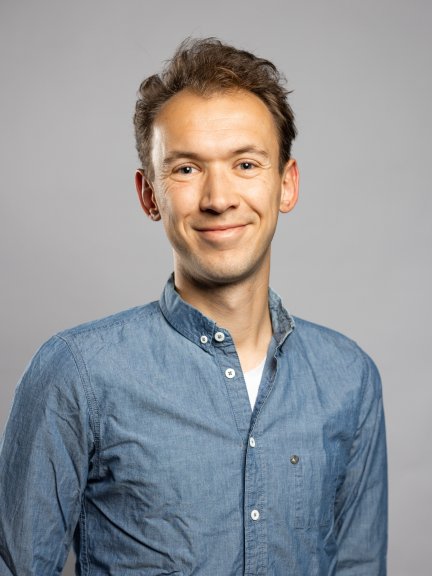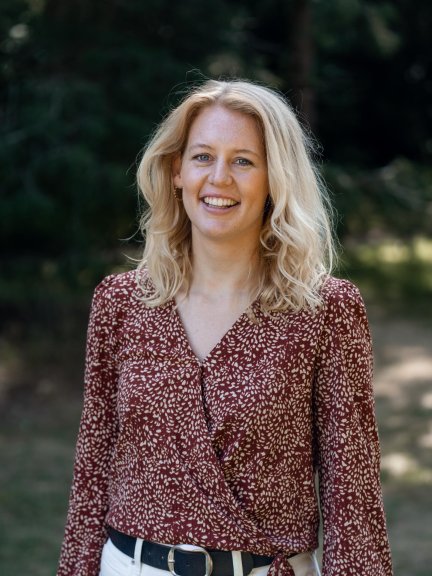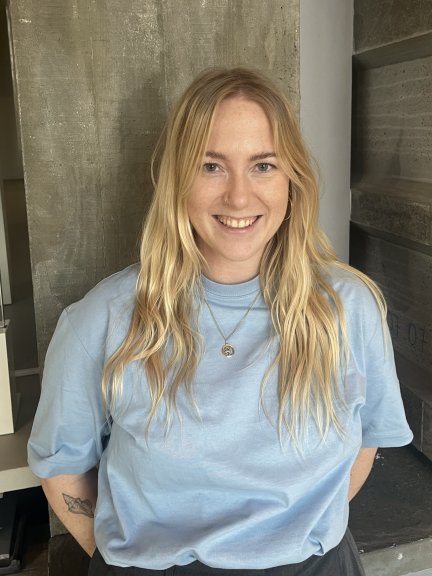What’s in it for you?
APH Junified 2025 provides you with inspiring keynotes and empowering workshops to boost your (implementation) competencies! Moreover, the event provides an excellent opportunity to network and meet other early and midcareer APH researchers.
We kick off the plenary session at 13:30 with an introduction by members of AmsCIS, we continue with an inspiring keynote presentation by dr. Sven Geelen, implementation researcher and committee member of the Netherlands Implementation Collective (NIC), and wrap-up the plenary session with an interactive presentation by APH reseacher dr. Trees Juurlink. In the second part of the afternoon, you have the possibility to attend a workshop of your choice.
- Workshop A – Tailored Implementation with the ItFits Toolkit – dr. Rixt Smit & Nikita Hensen
- Workshop B – AI in Academica – dr. Suzanne van Wouw, The Struggling Scientists
- Workshop C – Thriving Together: Enhancing Well-Being in Academia – dr. Stefan Mol, SciLink
NB: All workshops have a limited number of spots available, so the first to register secures their place.
We end the day with each other with drinks, appetizers and network opportunities with fellow early and midcareer APH researchers.
See below more information about the speakers and workshops.
Download program
Registration
Registration has closed on June 19th. For questions, please contact aph@amsterdamumc.nl
Keynote presentations
Expertise in implementation science and practice: Understanding the different hats one may wear
By: dr. Sven Geelen
Implementation science aims to increase our understanding of how to promote the uptake of evidence in practice, ultimately to maximize impact on health. The success of implementation science depends on skilled implementation researchers capable of conducting rigorous implementation research and skilled implementation support practitioners capable of applying implementation science knowledge effectively across diverse health services and care settings. Over the years, the growing focus on implementation in research funding and new change initiatives has significantly increased the demand for expertise in both areas. But what exactly are the roles of implementation researchers and implementation support practitioners? And what competencies are needed to thrive in these roles? In this session, we will explore the ongoing scientific debate about these so-called different roles and highlight recent (inter)national developments in the evolving field of implementation science and practice.

Dr. Sven J.G. Geelen will give a keynote in his role as committee member on ‘Education and Training’ within the Netherlands Implementation Collective (NIC). Sven works at the Burn Centre of Martini Hospital Groningen and the Research Group on Healthy Ageing, Allied Healthcare, and Nursing at Hanze University of Applied Sciences. He is an implementation researcher and support practitioner with extensive experience in developing and implementing new multimodal behavior change interventions, focused on, for example, self-management and physical activity behavior. Sven is also a member of several other committees, including the ZonMW committee for the ‘Palliantie II’ subsidy program.
From research to practice: reflecting on competencies with an implementation researcher and practitioner
By: dr. Trees Juurlink
What does it take to successfully support the implementation of evidence-informed interventions in complex real-world settings? In this interactive plenary session, the domains and core competencies of the Implementation Science Practitioner profile are discussed. Together, we will reflect on what is needed to improve sustainable implementation of evidence-based interventions and knowledge in real-life practice, with your personal learning goals and strengths.

dr. Trees Juurlink is an implementation researcher and practitioner. Trees brings a unique perspective from her work as a senior researcher at the department of Public & Occupational Health. She recently finished the ZonMW Implementation Science practitioner fellowship and will reflect on what it means to develop these competencies in practice and share stories from her personal learning journey and diverse implementation research projects. Expect live interaction, real examples, and honest reflection—designed especially for early-career researchers who want to build their implementation competencies.
Workshops
Workshop A: Tailored Implementation with the ItFits Toolkit
By: dr. Rixt Smit & Nikita Hensen
Successfully adapting interventions and tailoring implementation strategies to diverse real-world settings requires more than good intentions — it demands specific competencies in structuring and organising implementation work, stakeholder engagement, and evidence-informed decision-making. This interactive workshop introduces the ItFits Toolkit, developed as part of the PIECES project, which aims to strengthen these core implementation skills among teams in practice.
Tailored implementation — aligning strategies and programs with local context, barriers and needs — is key to improving the adoption, sustainability, and impact of (public) health interventions. While theoretical frameworks like CFIR and methods such as implementation mapping (Powell et al., 2017) provide valuable guidance, implementers or practitioners often lack structured, accessible tools to apply them in practice. The ItFits Toolkit addresses this gap by offering step-by-step guidance to:
- Select and adapt a program to a local context,
- Identify relevant implementation barriers and,
- Match these with tailored strategies to improve program delivery and impact
The toolkit aims to support teams in working together and planning implementation in a structured way, helping them develop the skills and structure they need for tailor implementation across diverse contexts. During this workshop, you will work in small groups using a real-world case example. Guided by the toolkit, you will identify context-specific barriers, explore strategy options using the built-in CFIR-based repositories, and reflect on your decisions. You will also gain insights into how the PIECES project evaluates implementation competencies and the mechanisms through which the toolkit supports their development.


dr. Rixt Smit is a postdoctoral researcher at Amsterdam UMC with a background in prevention and public health. Her work focuses on health promotion scale-up, realist evaluation, and smoke-free policy implementation.
Nikita Hensen is a PhD candidate at Amsterdam UMC with a background in health sciences and international public health. Her research centers on tailored implementation, health equity focused implementation, and qualitative methods.
Workshop B: AI in Academia
By: dr. Suzanne van Wouw - The Struggling Scientist
We have all heard of ChatGPT. But did you know it has some serious limitations? And guess what? There are better AI tools out there designed specifically for researchers like you!
In this workshop, you will:
- Discover powerful AI tools that go beyond ChatGPT.
- Learn how to use these tools to make your research smarter and faster.
- Get practical tips on using AI ethically in your work

This isn’t just another boring lecture. Suzanne will guide you through thought-provoking discussions on the ethics of AI in research, and you will get hands-on time to try out some of their top-recommended tools yourself. Don’t miss out on your chance to level up your research with AI.
Note - For this workshop you need to bring your own laptop.

dr. Suzanne van Wouw is a former PhD candidate who co-founded The Struggling Scientists, a platform with over 100,000 followers on social media. She has years of experience testing and reviewing AI tools for researchers.
Workshop C: Thriving Together: Enhancing Well-Being in Academia
By: dr. Stefan Mol, SciLink
This workshop, which is being developed by the Scilink foundation as part of the EU Funded PATTERN Project on Open and Responsible Research and Innovation (Open RRI), focuses on the nourishment and maintenance of well-being in academia.
Participants who join this workshop will learn about various circumstances that can impact well-being in academia and how to anticipate the potential effectiveness of different strategies for navigating these. After a brief introduction, Stefan will invite participants to choose a series of realistic yet hypothetical and fully anonymous scenarios from a larger set, that have been specifically designed to stimulate open discussions and experiential/problem-based learning around this topic.
Specifically, participants will be asked to jointly come up with various strategies to resolving these scenarios before evaluating each and trying to reach a consensus as to which resolution is likely to be most effective, and why. In sum, the aim of these ‘flipped classroom’ discussions will be to practice, in a safe space, the derivation of viable/practical solutions that the protagonist depicted in each of the scenarios might leverage to their advantage.

dr. Stefan Mol is the co-founder of SciLink Foundation, and assistant professor in Organizational Behavior & Research Methods at the University of Amsterdam.

